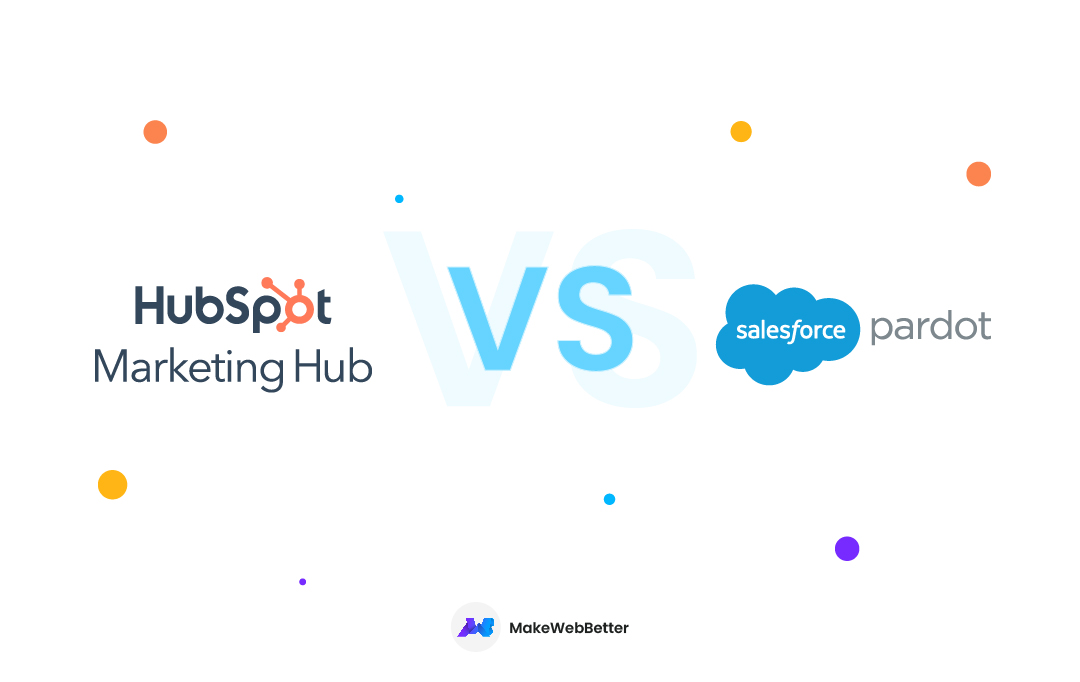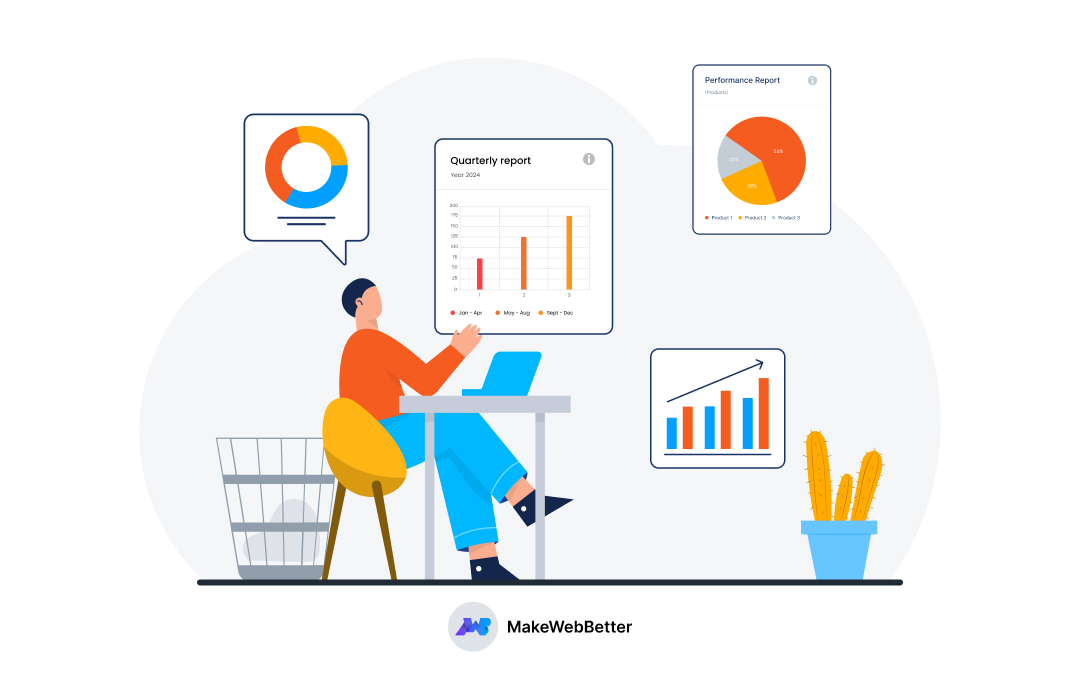Why are you even comparing HubSpot vs Pardot?
This question has been on the hit list of recent searches on SERP. And the group of searchers is the users and prospects who are already using Salesforce’s CRM.
Of course, Salesforce is a highly appreciated player in the CRM market and its products like Pardot are well in use for much time. So, it doesn’t make sense to its users why comparing HubSpot marketing tools with Salesforce’s Pardot is rational or not.
However, there is also a segment of Pardot users who are eagerly looking for a better marketing automation alternative platform to Pardot. And HubSpot is, without any doubt, grasping its hold stronger in the CRM industry real quick.
Nonetheless, your choice of CRM and marketing automation software will impact your business directly in the long run. Hence, it’s crucial to understand both ends of the buzz with the Pardot vs HubSpot comparison.
In this Article, We’ll Cover…
- What is HubSpot Marketing Hub?
- What is Pardot?
- HubSpot vs Pardot Overview
- Are HubSpot & Pardot Similar?
- Pardot vs HubSpot Pricing
- HubSpot vs Pardot: Fundamental & Technical Grounds
- HubSpot vs Pardot: Critical Marketing Capabilities
- HubSpot vs Pardot: Which is the Better Marketing Automation Platform for your Business?
What is HubSpot Marketing Hub?
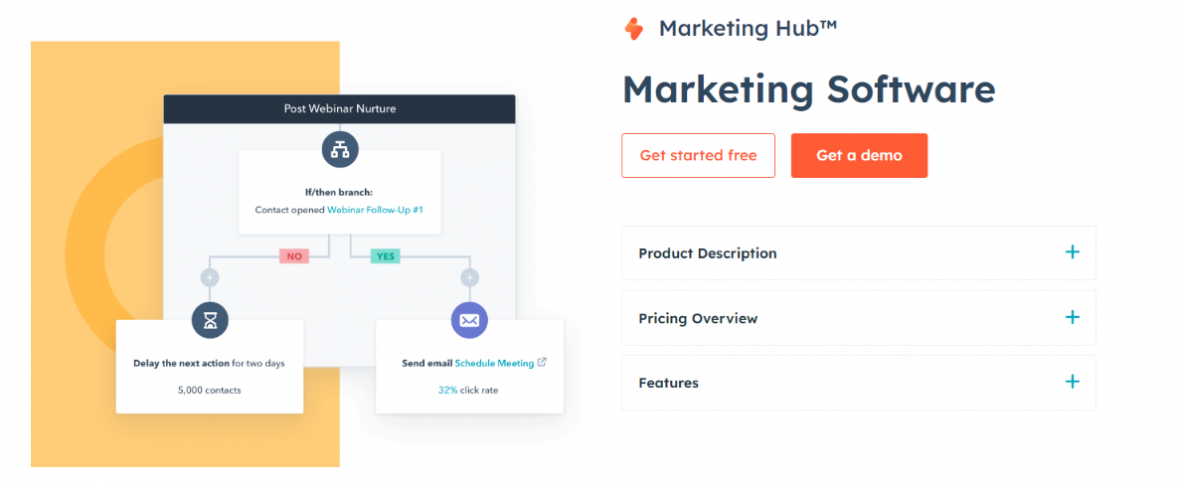
Source: HubSpot
HubSpot is the popular CRM we all know about. HubSpot Marketing Hub is one part of HubSpot’s architecture dedicated to marketing automation tools completely.
The Marketing Hub software allows users to strategically create and manage CRM-powered campaigns for their marketing efforts. HubSpot Marketing Hub is deeply integrated with your store & customer data. And it can cater to all your automated inbound marketing campaign necessities to help you grow your business.
What is Pardot?
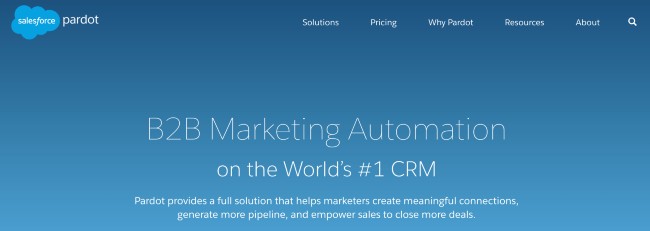
Source: Salesforce Pardot
Pardot is the extended marketing automation solution provided by a cloud-based CRM platform, Salesforce. It was originally launched in 2007 as a stand-alone marketing automation platform which was subsequently taken over by Salesforce.
HubSpot vs Pardot Overview
HubSpot and Pardot are both prominent names of marketing automation software and have been serving customers for a good time, satisfying their requirements and helping them to achieve their goals.
However, when two platforms compete on forefronts, there are certainly critical grounds for differences. Let’s understand the HubSpot vs Pardot with this overview table for the start before we dive deeper into the comparison.
Differential Factors |
HubSpot Marketing Hub |
Salesforce Pardot |
Technical Fronts |
||
| Ecosystem | Extends to a lightweight CRM platform than Salesforce. | Robust CRM competitor but only a part of the Salesforce platform. |
| Integrations | Can be easily integrated with multiple third-party tools using connectors. | Have the limited capability to integrate apps but have few connectors. |
| Tool Scope | Focussed to become the only inbound marketing suite. | More inclined towards sales enablement & customer journey. |
| Partner & Consultancy | Provides opportunities to smaller agencies with deep insights into inbound marketing and execution strategy to grow together with HubSpot. | Salesforce partners are usually part of the CRM industry with knowledge of Salesforce implementation and sales operation. |
Key Capabilities |
||
| Usability | Highly Intuitive, easy navigation, comfortable UI/UX. | Easy navigation and comfortable UI/UX. |
| Scalability | Highly scalable & flexible platform. | Need developer assistance to scale or modify the setup. |
| Email Marketing | Drag-drop email editor with customizable template support. | Need to find the email template first before creating an email. |
| Social Media Management | Facilitates scheduling, posting, and management functionalities for social handles like Facebook, Twitter, LinkedIn, and Instagram. | Suitable enough to maintain the basic social presence for a company’s profile. |
| Reporting | Immersive and comprehensive reporting dashboards and layouts. | Dependent on Salesforce reporting add-ons. |
| Support | 24/7 call, chat, email, and query support along with a palpable community. | Renders customer service via Salesforce’s support portal. |
Are HubSpot & Pardot Similar?
Yes!
Although we’re talking about HubSpot vs Pardot here, the comparison won’t be fruitful enough if we don’t know their similarities. Pardot and HubSpot are similar in far more ways than they are different. Majorly, both HubSpot and Pardot have the following points of similarities:
- They both offer functionalities around the “critical path” of marketing automation.
- Both the software focuses on mid-market and B2B companies.
- And, both have an extensive list of features geared toward enterprises.
This means that both Pardot and HubSpot are suitable options to scale your business with better marketing efforts.
But, you have to choose one for your business, and for that purpose, knowing the differences between them is more important.
Pardot vs HubSpot Pricing
The floating price isn’t always the only cost you’re paying. For a better understanding of the hidden costs involved with each, HubSpot Marketing Hub and Pardot, let’s split and break down each segment of a standard subscription plan.
Pricing Breakdown for HubSpot Marketing Hub Enterprise and Salesforce Pardot Advanced
Pricing Factors |
HubSpot Marketing Hub(Enterprise Plan) |
Salesforce Pardot(Advanced Plan) |
| List Price (10,000 contacts) | $3,200 /mo | $4,000 p/m |
| Third-party Implementation | Connect with a Solutions Partner in HubSpot Marketplace | Connect with a Salesforce Partner on the AppExchange |
| In-house Implementation | Implementation charges start from $6,000 by implementation specialists. | Salesforce offers an implementation & setup service for $5,000 |
| CRM | HubSpot CRM Included | Purchase Salesforce CRM |
| Support | Includes free phone and email support, 24/7 assistance guaranteed. | 20% of the net cost for phone support and 24/7 coverage, 30% for additional feature access, and 5% for US-based support. |
| Platform Maintenance | A seamless platform built on a single code base. Hence, easy and hassle-free maintenance. | The long and tiring process to upgrade connectors and configure them with regular updates. |
| Estimated Total Cost for 1 Year | $44,400 | $80,600 |
HubSpot vs Pardot: Fundamental & Technical Grounds
1. Ecosystem
While choosing the marketing automation platform, you must take into account the scope of the customer experience suite. Both HubSpot and Salesforce offer much more tools and functionalities than just marketing automation.
To keep expanding customers into their suites and ensure their loyalty to their ecosystem, both platforms are striving to boost their customer experience offerings. Moreover, you must also look into the vendor’s offerings for sales and services too (for long-term planning, ofcourse).
The growth of your business is the compiled result of all the individual tech stacks — marketing automation, sales enablement, and services. Therefore, understanding the ecosystem of your CRM is crucial for your cross-department functional efforts.
You cannot go with a cross-platform approach for your various teams because it will make it hard for you as well as for the individual departments too to gather the pre-post data for planning strategies and executing them too.
Owing to this, HubSpot is the one-stop interrelated solutions platform. Its hub architecture can easily facilitate the needs of all your departments from a single point of the solution.
While on the other hand, Salesforce’s Pardot is the standalone marketing automation software. And to collaborate with other teams, you need to buy other Salesforce products to complete your ecosystem requirements.
2. Integrations
A business has multiple verticals and requirements.
Choosing the right marketing automation platform for your business to gather and serve requirements from all verticals is equally essential.
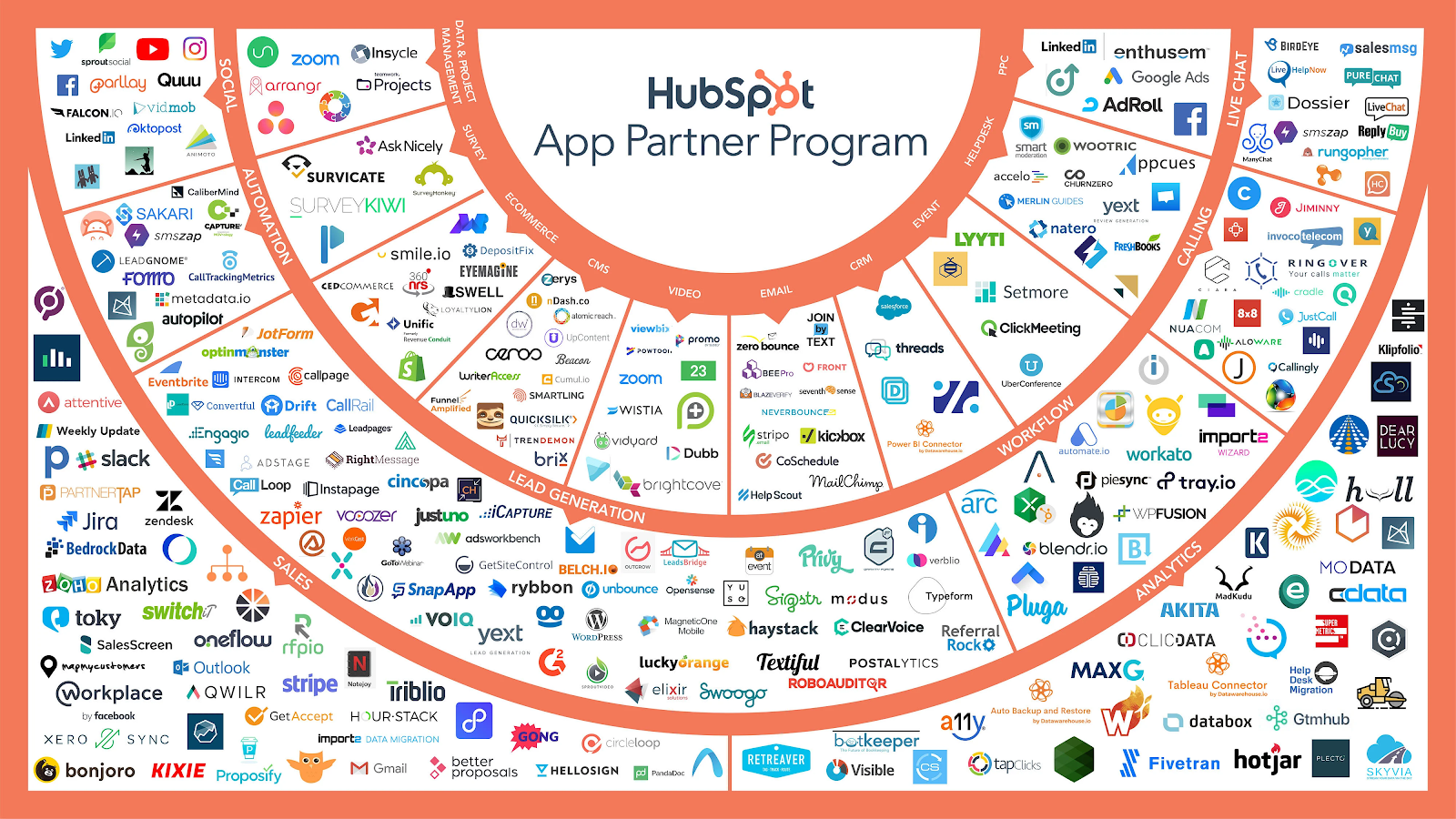
Source: HubSpot
For the HubSpot vs Pardot comparison, we prefer going with HubSpot Marketing Hub for the support of the integration because it can easily integrate with third-party apps and solutions to fulfill your requirements that fall outside of the functionalities that HubSpot offers.
HubSpot is specifically targeting integration partners to make their platform widely accessible.
On the other hand, Pardot has limited access to third-party integrations. It is majorly integrated with webinar vendors, Google Analytics & AdWords.
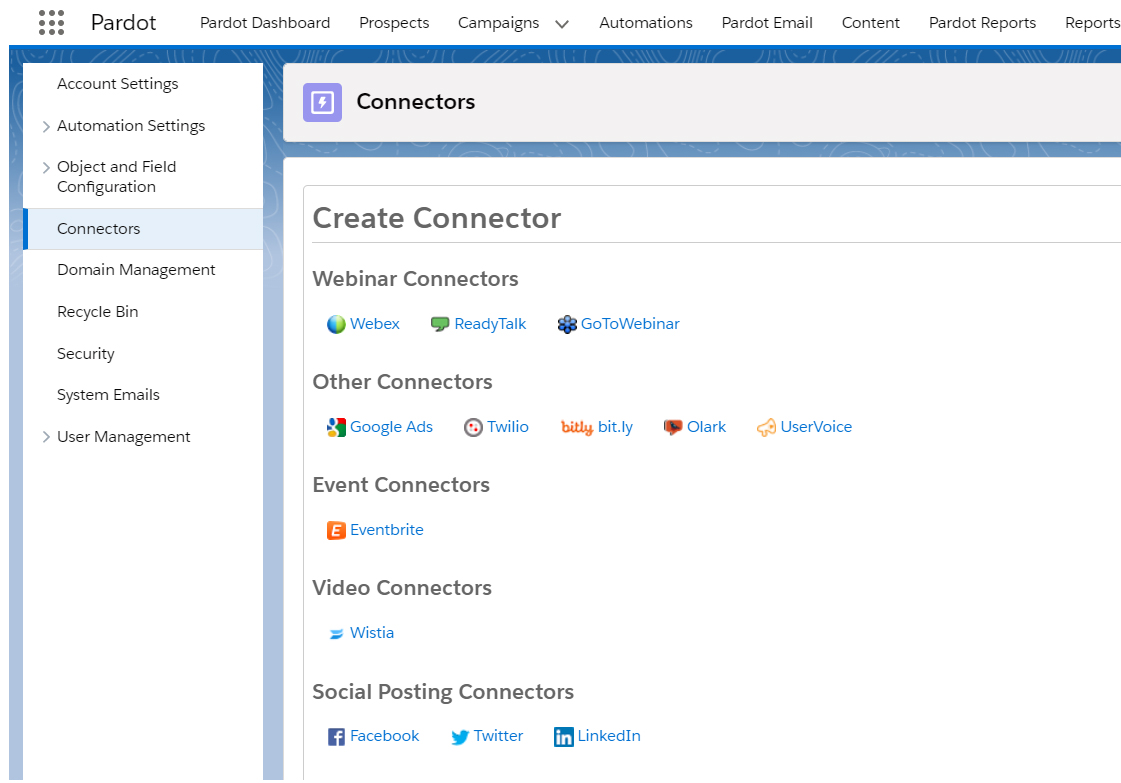
Source: Salesforce Repository
However, the benefit of Pardot is that with the new Salesforce Customer 360 vision, Pardot can now tap into any of the Salesforce-integrated tools.
Did You Know?
HubSpot currently has 1,235+ integrations registered on its marketplace only!
3. Tool Scope
As discussed above, both HubSpot and Pardot offer functionalities to marketing automation; they both provide tools for segmentation, database management, landing pages, email, and automated workflows.
HubSpot is more inclined toward inbound marketing while Pardot is more into sales enablement and purchase-oriented customer journeys. This signifies that in terms of tools, HubSpot and Pardot differ in the scope of functionality.
HubSpot is an “inbound marketing” platform. Its objective is to strive marketers with the fascination of inbound concepts and the complete journey of each customer. The flywheel concept introduced by HubSpot is the visual representation of how they perceive the marketing journey of a prospect from becoming a qualified lead to finally transforming into a customer and then into a brand advocate.
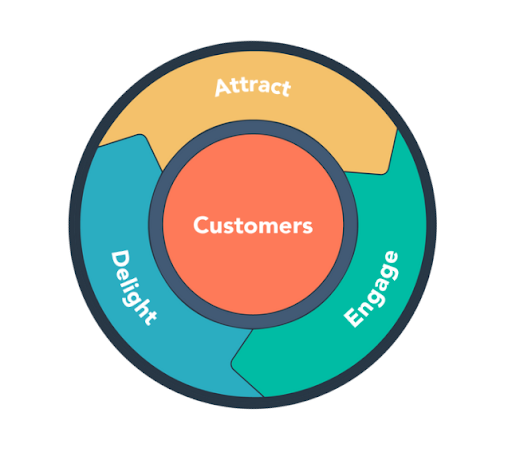
Moreover, the complete CMS suite of HubSpot taps into inbound marketing easily with content, SEO, and social functionalities.
While with Pardot, the focus lies on “sales enablement”. It has more options to commute leads between sales and marketing with an aim to track customer journeys involving purchases.
With Pardot, you can also trigger campaigns to sync data from opportunities. However, it lacks the capability if you wish to use it for inbound campaigns. It has suitable tools to nurture the customers post their purchase journey and through their sales cycles. Pardot also includes some basic content and social functionalities but it can stand nowhere near HubSpot for the CMS tools.
4. Partner & Consultancy
HubSpot and Salesforce, both have a similar approach to building their community. They have partner programs running and consultancy services to aware their users and potential customers supplement their knowledge about products, services, and tools.
HubSpot aims to grow better, together. Hence, it has a wide community of partners from smaller agencies to large enterprises. The HubSpot partner agencies have a particularly deeper knowledge of the HubSpot marketing suite and good knowledge of digital marketing concepts. Their expertise in planning a marketing strategy, content, or social strategy is helping out the businesses while bringing more opportunities in for HubSpot.

Similar to HubSpot, Salesforce also provides a partner program to its users. But again, the scope of functionality differs here too. The HubSpot partner agencies are more inclined towards the marketing sphere while in Pardot, there is a landscape shift. Salesforce partners belong to a more technical sphere of implementing CRM and/or setting up challenging systems. Yet they lack the credibility to apply that software to marketing strategy.

In fact, many HubSpot agencies have come forward recently to offer Pardot services too with migration services to compile the knowledge of B2B platforms which is missing in the Salesforce partner community.
HubSpot vs Pardot: Critical Marketing Capabilities
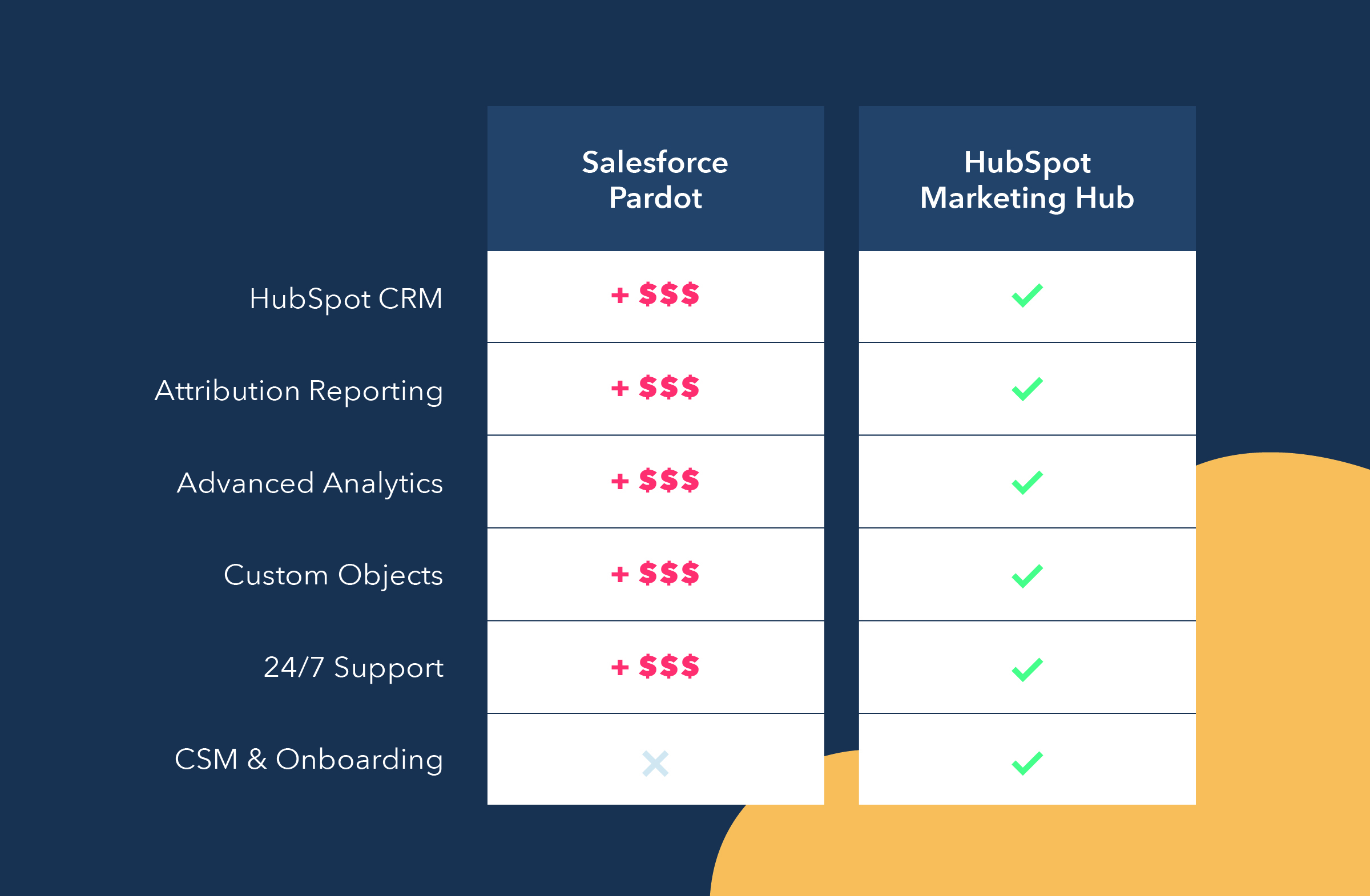
Source: HubSpot Comparisons
1. Usability
HubSpot serves its customers with undeniably comfortable experiences. It is a highly-intuitive platform with a clean UI/UX and an easy navigational interface. Moreover, it is so easy to use that once you get familiar with its functionality, you wouldn’t need a developer to assist you with instant modifications or changes.
With the HubSpot themes, built-in templates, and in-house hosting credibilities, the users can make adjustments on their own.
Similarly, Pardot is much like HubSpot in terms of navigation and user interface. Both these platforms are equivalently intuitive and easy to use for any business type.
2. Scalability
Businesses adopting marketing automation will surely be having the vision to grow and scale their business. And when you scale your marketing efforts, other departments also move along. Therefore, you must consider the scalability requirements of your business when deciding on marketing automation software.
Talking of Pardot vs HubSpot, scalability is the ground factor that HubSpot holds to.
HubSpot Marketing Hub prioritizes rigid recommendations along with its ease-of-use sense to help businesses get started. This means that with HubSpot, you have the flexibility to upgrade, change and adapt to new instances over time while each phase of customization is layered one by one owing to business scaling complexities.
On the other hand, Pardot also offers easy customization options for complex management too but it is dependent on the developer or technical support team. Hence, this dependency makes it hard for businesses to adapt to the Pardot instances while scaling the business.
3. Email Marketing
Sharing emails is the most common practice followed by marketers even today. However, with the growing number of campaigns and marketing activities, managing email manually can be very challenging. Even if you plan the emails beforehand, sharing them timely, without any automation will only burden you and your marketers.
Email automation can not only save you more time but can also boost the credibility of your emails through enhanced testing functionalities.
Hubspot is the most admired platform in this segment. Its email editor is built with drag-and-drop functionality. With this tool of HubSpot Marketing Hub, marketers can create attractive and convincing email designs or use email templates before sharing them with the recipients.
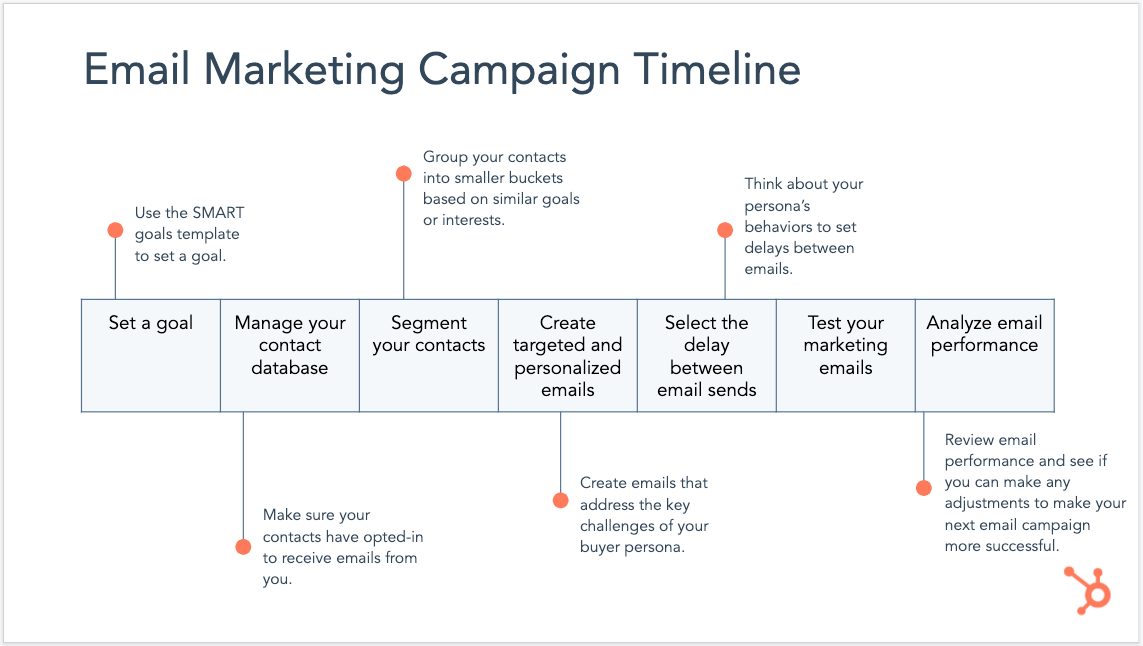
The only drawback or limitation here is that the number of emails you can share depends on your HubSpot subscription plan.
With Pardot, on the other hand, marketers have no option to curate email templates. Their only chance to roll out well-designed emails is by researching and finding the most suitable template by investing their time in it.
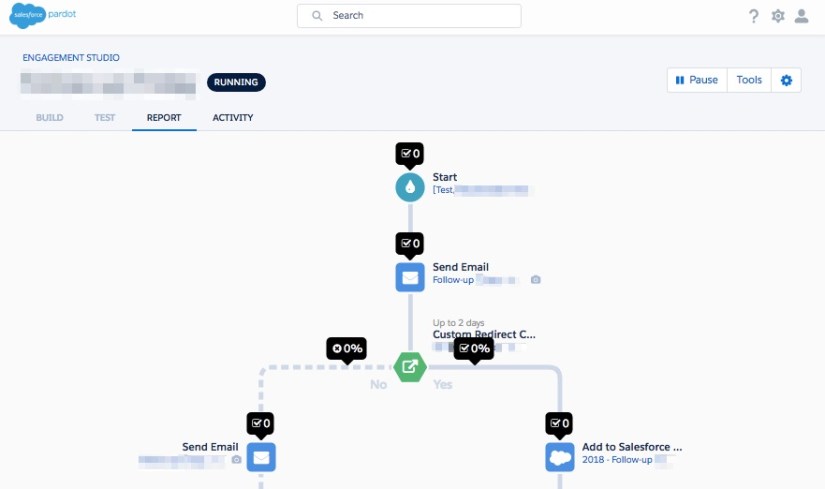
4. Social Media Management
When comparing HubSpot vs Pardot, you must never skip this factor. Pardot and HubSpot offer functionalities to post and monitor content on social media channels like Facebook, Twitter, and LinkedIn.
However, HubSpot takes the lead here because it can also offer post-scheduling and management for Instagram. And with other third-party integrations support, you can play and try as many other social handles too as you require for your business.
While Pardot struggles to extend forward with additional functionalities. It only serves as a tool to manage a basic social media presence for a company profile.
5. Reporting
HubSpot provides detailed layouts and comprehensive dashboards to summarize and monitor the performance of your business activities and the efforts of your employees and teams.
HubSpot Marketing Hub’s revenue and contact attribution reporting is a viable source to resonate with your sales process, lead & demand generation to finally close deals. Every minute detail that you can wish to derive from your business data, HubSpot has sorted for you.
Moreover, it also provides pointers to help you take data-backed decisions when planning campaigns and strategies for the next move or planning budget allocations.
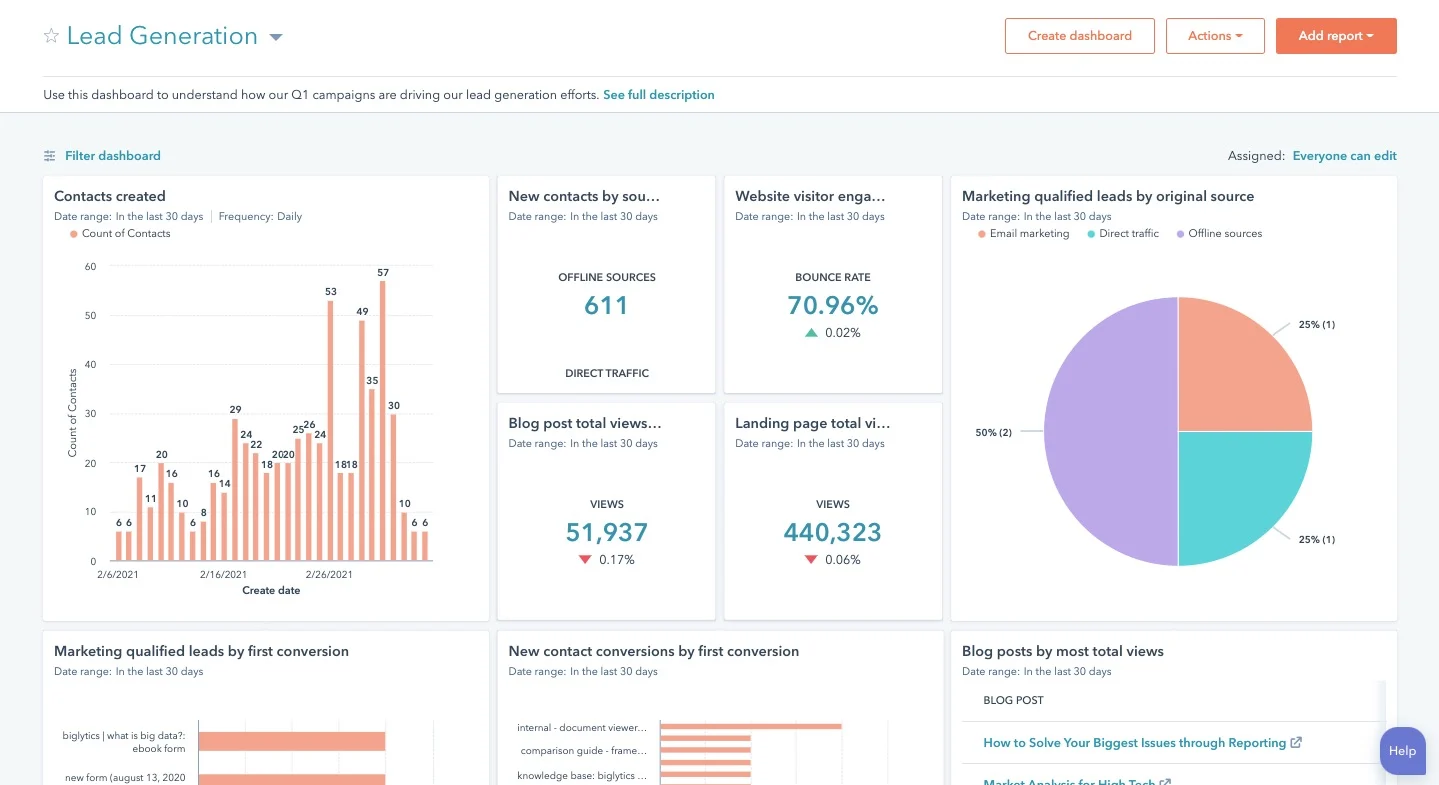
Though Salesforce has many paid add-ons to facilitate reporting requirements for businesses, Pardot can never compare to HubSpot reporting functionalities.
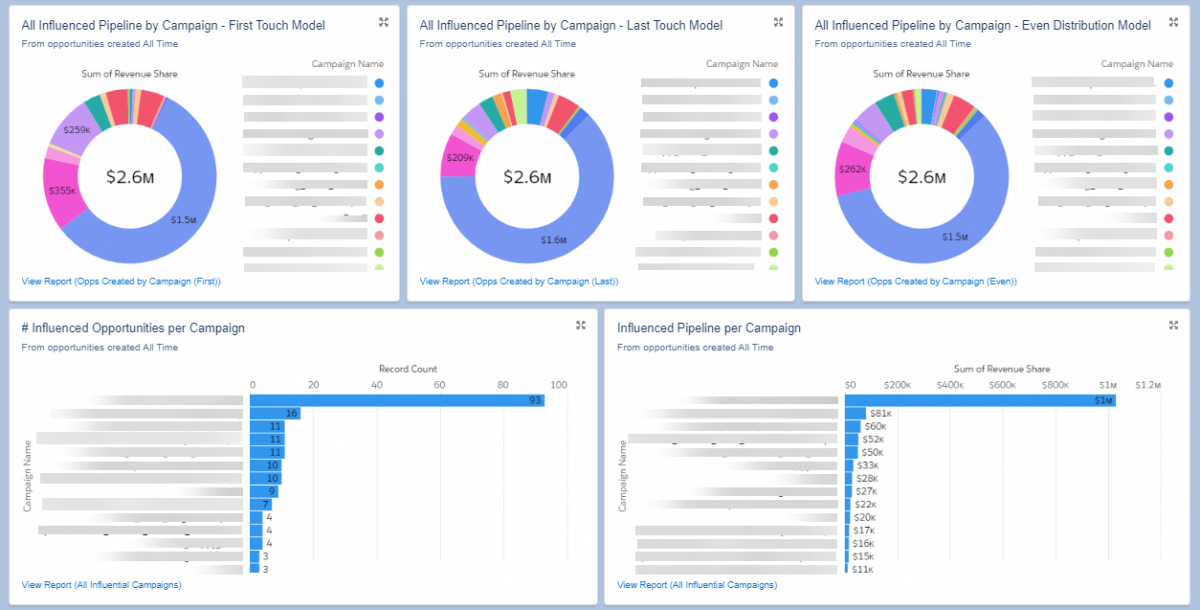
6. Support
Another factor that supports your marketing automation requirements is your customer experience. The right customer experience acts favorable to decide the success of your campaign. Handling customer services at the end-user level makes all the difference, even for the HubSpot vs Pardot scenario.
HubSpot customer services work at the ground level, in all the possible modes of communication from chat to call, email queries to scheduling a meeting with the customer, connecting on the live chat, or with a chatbot; it continues to offer all-rounder support, and direct service to its customers 24/7 with genuine responsibility to resolve the issues and doubts with earliest possibilities.
On the other hand, Pardot offers customer support by submitting tickets/cases on the main Salesforce support handle.
The drawback is that you only get the right response from them if you can ably explain the issue to the support personnel. Else you have to rely on agency partners for support which incurs additional costs (sigh!).
HubSpot vs Pardot: Which is the Better Marketing Automation Platform for your Business?
Both marketing automation platforms have their own set of strengths and weaknesses. The choice now comes down to you and your business requirements.
The wiser decision would be to analyze both platforms on each ground in accordance with your long-term goals and vision.
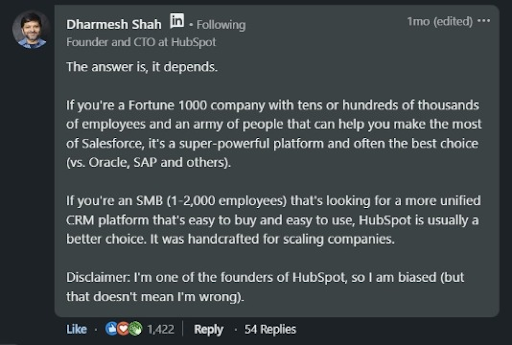
If you take my opinion, I’d suggest going with HubSpot Marketing Hub than Pardot; not because we’re the HubSpot Agency. But, for better features, tools, functionalities, support, third-party integration compatibility, immersive community guidance, and the mission to grow together under any circumstances.
Switching from Pardot to HubSpot?
Check out our elaborative guide on how to migrate your data from Pardot to HubSpot or connect with our migration experts for any assistance.

